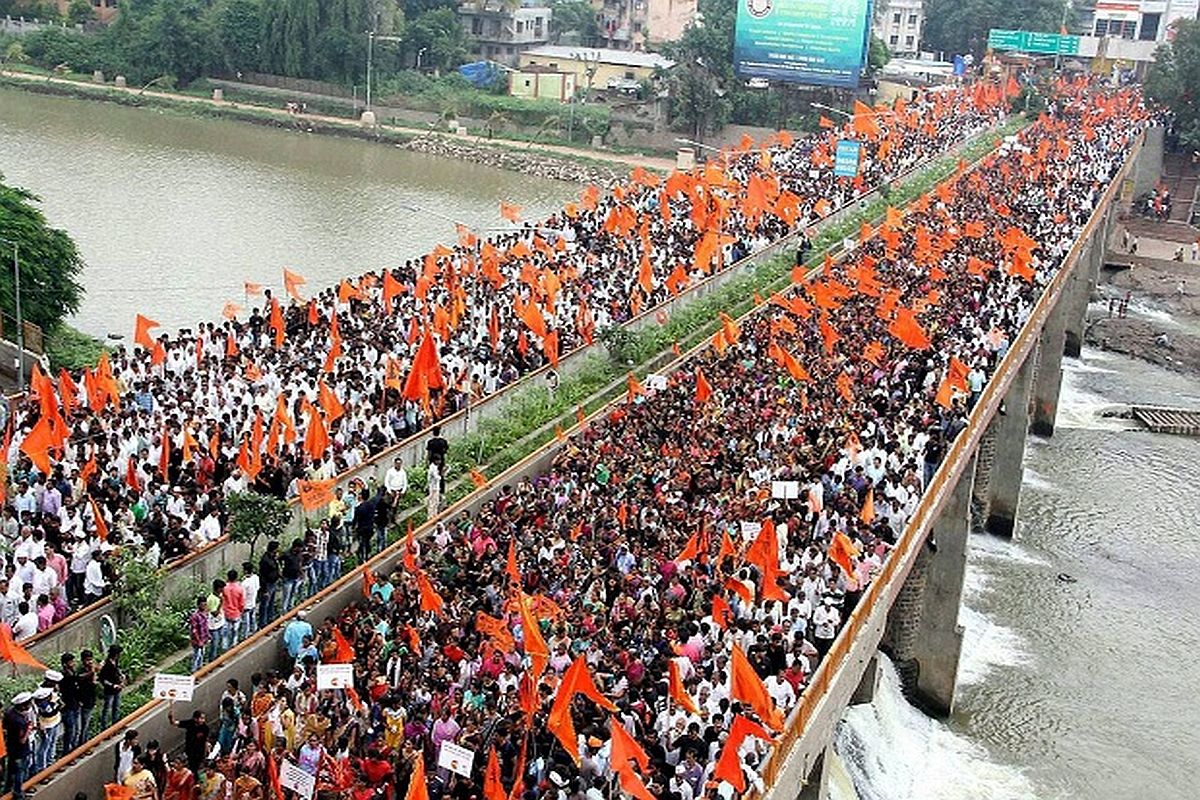Supreme Court rejects 100 per cent cross verification of EVM votes with VVPAT slips
The top court also rejected the prayers of petitioners to return to ballot paper voting system, calling it foible and unsound.
The Bombay High Court on June 27 upheld the constitutional validity of reservation for the Maratha community in government jobs and education.

People participate in a protest by Maratha Karnti Morcha. (Photo: Wikimedia Commons)
The Supreme Court on Friday said that Maharashtra government’s decision to grant reservation to the Maratha community in education and jobs cannot be implemented with retrospective effect.
The apex court issued a notice to the Maharashtra government on the appeal filed in the Maratha reservation case, which said that the government had notified the reservation policy with retrospective effect from 2014.
Issuing a notice to the state government, the court said that all actions taken pursuant to the High Court order shall be subject to the outcome of the proceeding before the Supreme Court.
Advertisement
Meanwhile, the Supreme Court refused to stay Maratha reservation but said that it will hear the appeal for quashing of reservation for Marathas.
The Bombay High Court on June 27 upheld the constitutional validity of reservation for the Maratha community in government jobs and education.
A division bench of Justices Ranjit More and Bharati Dangre, however, said the quota percentage should be reduced from 16 per cent to 12 to 13 per cent, as recommended by the State Backward Classes Commission.
It said the 16 per cent reservation was “not justifiable”.
On November 29, 2018, the Maharashtra Assembly had unanimously passed a bill proposing 16 per cent reservation for Marathas under the socially and educationally backward category.
The bill provides for reservation of seats for admission in educational institutions and posts in public services to Marathas who have been declared as socially and educationally backward class of citizens.
The Maratha community, which comprises over 30 per cent of the state’s population, had been seeking reservation in government jobs and education for a long time. Their stir for the same in July and August this year had taken a violent turn.
Advertisement